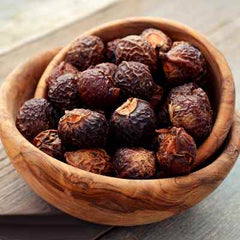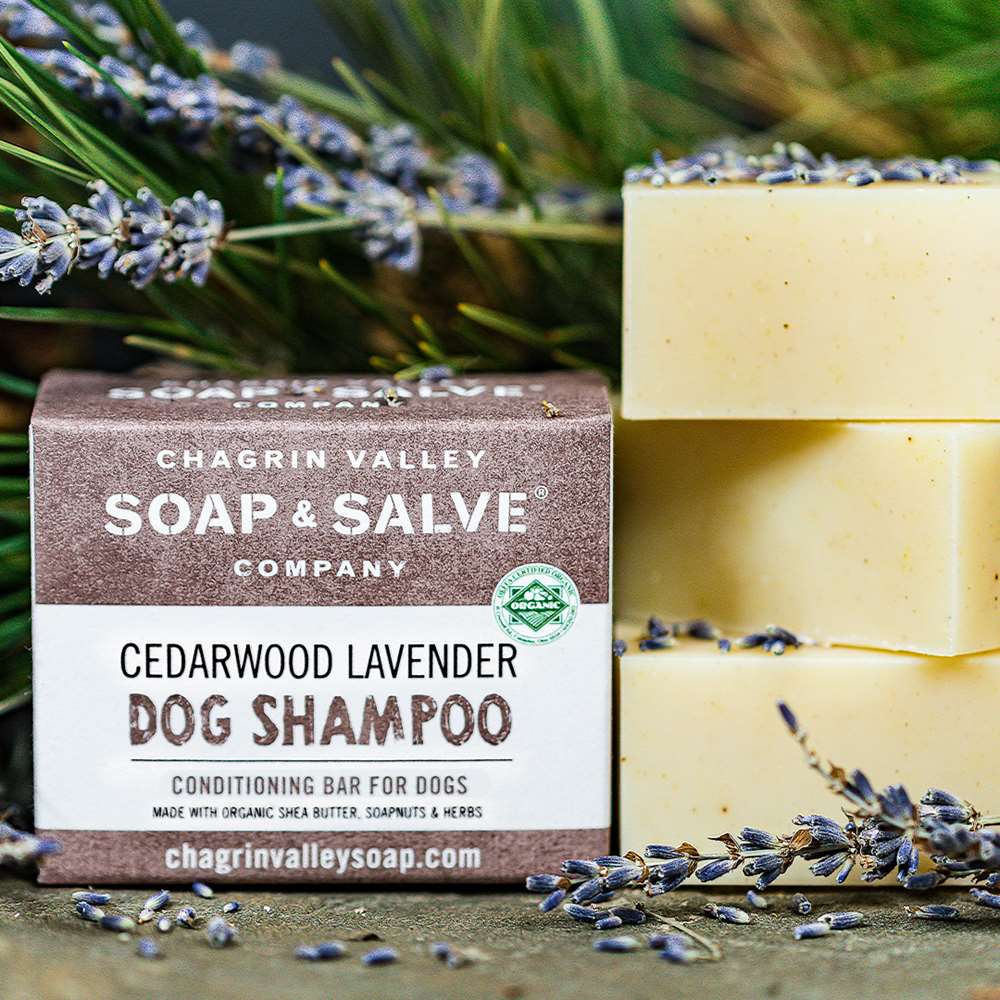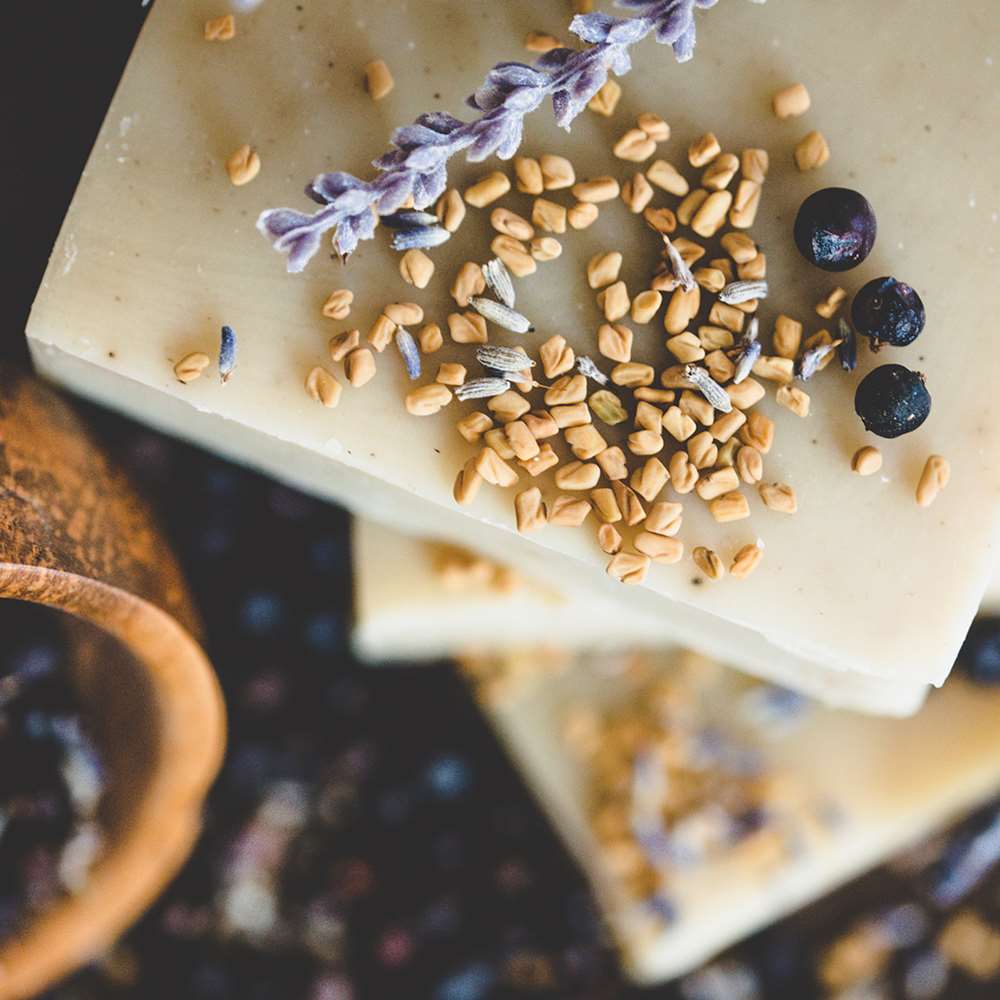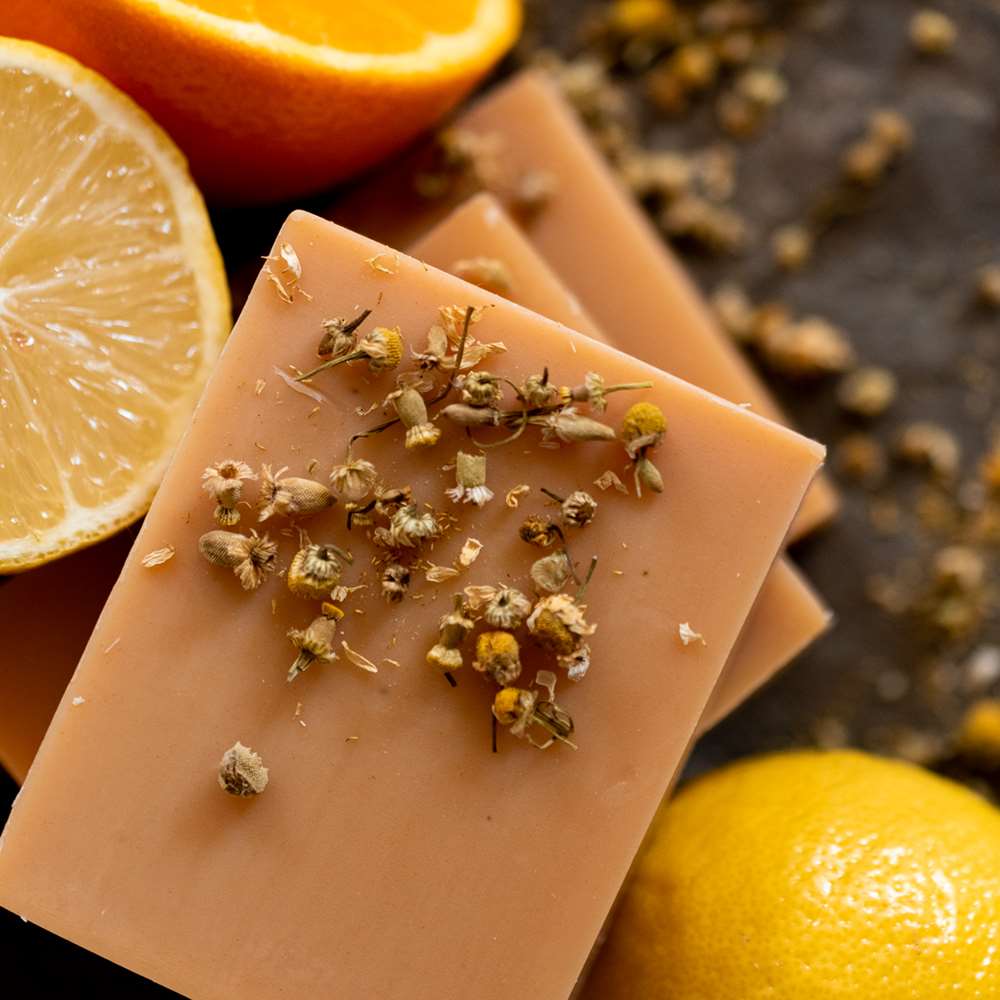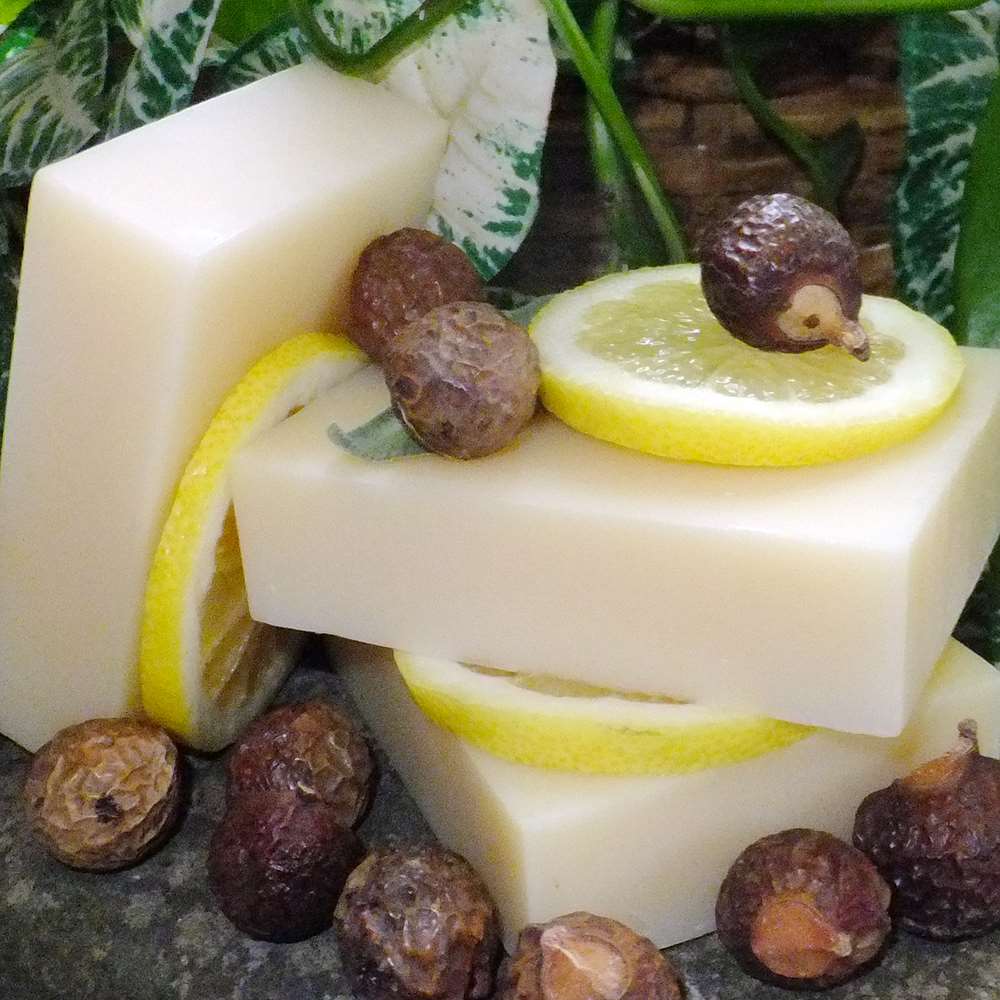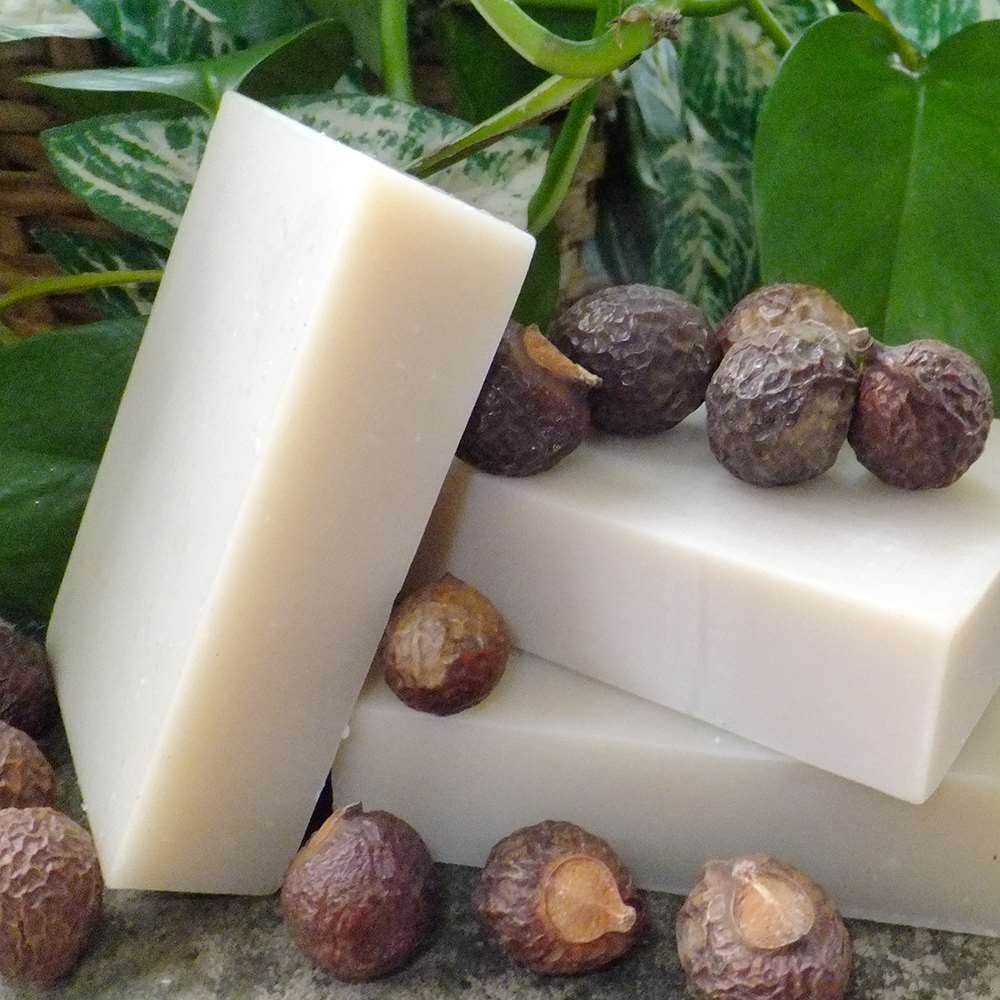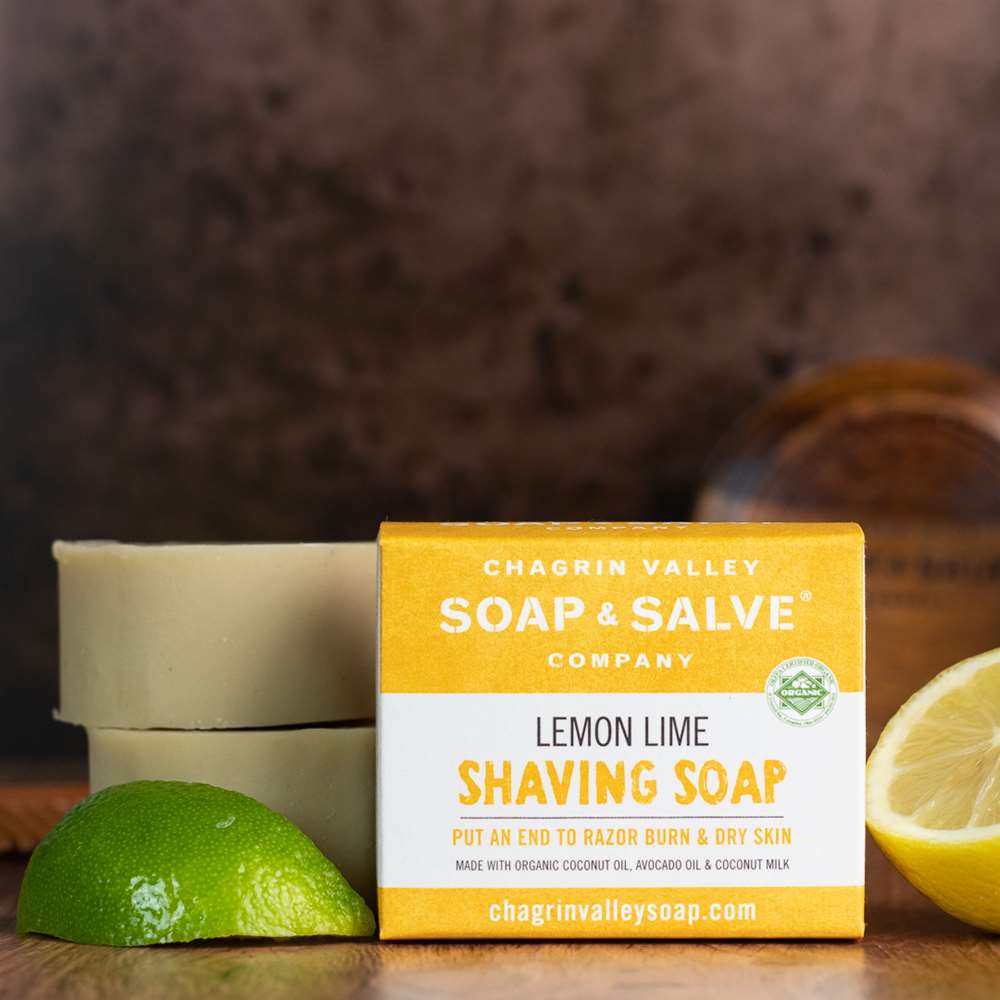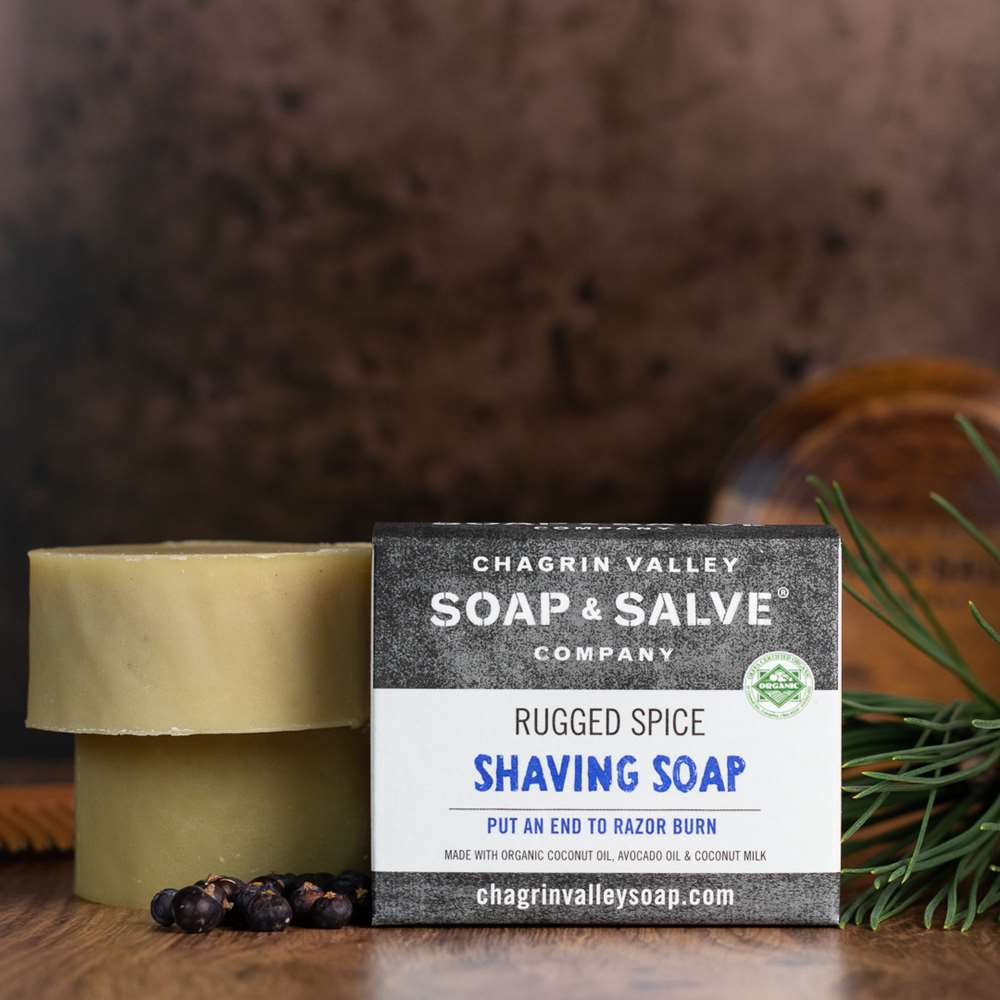Soapnuts, Sapindus mukorrosi, also known as Aritha or Reetha, are a member of the genus Sapindus which contains numerous species of small trees native to warm temperate to tropical regions. The genus name is derived from the Latin words "sapo," meaning "soap", and "indicus," meaning "of India."
Members of this genus are commonly known as soapberry or soapnut trees because the fruit has been used for centuries to make soap. Soap nuts are not actually nuts they are berries. Local farmers harvest the berries and remove the shells which are then dried in the sun and then resemble nuts. The dried hulls of the soapberry nut contain a high level of saponins, natural surfactants that act as natural foaming and cleansing agents.
A surfactant is a substance that reduces the surface tension of liquids so that the liquid spreads out, this allows for easy flow throughout water and the release of dirt, oils, and grime. Soap is a natural surfactant but detergents are synthetic surfactants.
This 100% natural product requires no chemical processing. The inner seed, which contains no saponins, can be planted to create new trees for an easily sustainable forest. Soapnuts are not only sustainable, but they are also biodegradable, chemical-free, and gentle. Soap nuts are a fruit closely related to the Goji berry. Since they are not true nuts, they can be used safely by people with nut allergies.
A popular ingredient in Ayurvedic shampoos and cleansers, soapnuts provide many additional benefits for skin and hair including anti-inflammatory and anti-microbial properties. They are used in Ayurvedic medicine to soothe eczema, psoriasis, itchy skin, and sensitive skin. Soapnuts, very gentle on the skin and scalp, have natural conditioning properties that will help keep the skin moisturized.
In hair care, Aritha, an excellent hair tonic, has long been known for its benefits for healthy hair and scalp. add body, bounce, and shine to dull hair, help treat scalp infections and dandruff, and have been used in Ayurvedic medicine to prevent hair loss. The natural saponins not only cleanse hair, but also add body and sheen and make hair feel thicker, silky, and smooth.
The soapnut tree belongs to the "soapberry" or Sapindaceae family which it shares with the Lychee.
Are Soapnuts and Shikakai the Same?
 There is a lot of confusion between these two plants since they are both often called "soapberries."
There is a lot of confusion between these two plants since they are both often called "soapberries."
While you may often find personal care companies, as well as suppliers, treating them as if they were the same plant, soapnuts and shikakai are not the same.
Soapnuts (aka aritha or reetha) are a member of the genus Sapindus in the family Sapindaceae, which consists of trees that grow in temperate and tropical regions of the world. The lychee tree is also part of this family.
 Shikakai (aka soap pod), on the other hand, come from the genus Acacia, which is a climbing shrub that grows in the warm plains of central and southern India and is a member of the family Fabaceae which is the is also known as the pea or legume family. All members of the Fabaceae family have fruits that are legumes!
Shikakai (aka soap pod), on the other hand, come from the genus Acacia, which is a climbing shrub that grows in the warm plains of central and southern India and is a member of the family Fabaceae which is the is also known as the pea or legume family. All members of the Fabaceae family have fruits that are legumes!
While these are completely different plants, both contain high levels of saponins and are traditionally used in Ayurvedic hair care. Saponins are very gentle natural surfactants that act as natural foaming and cleansing agents, making them great ingredients to include in natural shampoo bars or even natural soap.
Both of these Ayurvedic powders are often suggested to help with hair loss, dandruff, hair thinning, and irritated scalp conditions.
